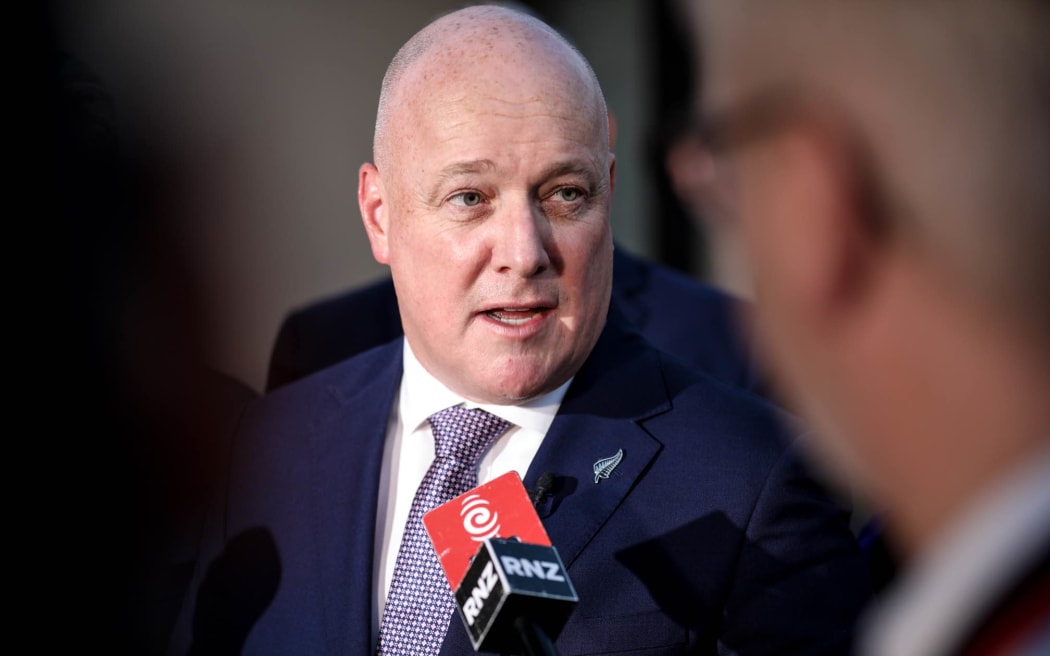
Worksafe HQ in Wellington Central Photo: RNZ / Angus Dreaver
The Council of Trade Unions says proposed changes to WorkSafe shifts rights away from workers and to their employers.
The government is shifting WorkSafe's priorities from enforcement, to giving more advice.
The workplace safety regulator is getting a new letter of expectations, having its finances rearranged, and it's main purpose re-defined in legislation.
The changes would not come with any new funding.
Council of Trade Unions president Richard Wagstaff told Morning Report the changes will deter employees from raising concerns, out of fear of being blamed.
"What we need is a culture where workers are able to talk about what needs to be done on the job and what needs to be made safe, not one where they can be blamed for [it]," Wagstaff said.
"I think it just reflects a government and a minister who sees everything as needing rebalance and she tends to rebalance things towards employers..."
The existing system needs to be strengthened not weakened, he said.
While he did support making advice clearer and more available, Wagstaff said WorkSafe was under-resourced.
"And I think WorkSafe understands that... what they need is resources to develop that guidance and promote it."
Workplace Relations and Safety Minister Brooke van Velden said she expected the regulator to review its enforcement and prosecution decision-making to focus on "clear breaches and causation", and being even handed. This would include "strengthening its approach to worker breaches of duty".
"I've been hearing there is a real culture of fear of people around WorkSafe, and I want people to feel like if they ask for help they will get that help - and so for any business or any worker who wants to know what it is that they should be doing to keep their workers safe, they will know where to go," Van Velden said.
She denied that this could mean slowing down the rate of prosecutions, however.
Wagstaff said WorkSafe needs to have a reputation that it will enforce the law when required.
"This really signals it's not intended to do so anymore."
Council of Trade Unions was not properly consulted on the changes, he said.

Prime Minister Christopher Luxon speaks to media in New Delhi, India on 19 March 2025. Photo: RNZ / Marika Khabazi
Christopher Luxon told Morning Report just being an enforcement agency isn't the right approach.
"What we're wanting to do is rebalance it so it puts more of its effort on guiding those businesses to help manage their critical risks, what we don't want is lots of rules that actually people in businesses are struggling to navigate and as a result don't focus on the critical things that actually cause harm at work," Luxon said.
"At the moment you just don't want to have a whole bunch of guidance and rules out there everyone's trying to navigate and work out what the hell it all means, we actually want small businesses focused particularly on the things that will hurt their employees."
Luxon said the government hoped the number of people dying at work decreased.
Asked why the responsibility was shifted away from bosses to employees, Luxon said it was "rebalancing it".
Everyone needed to take individual responsibility, he said.
WorkSafe said it was working closely with the government on the changes and it was well placed to deliver.
"Our role will continue to be influencing businesses and organisations to carry out their work health and safety responsibilities," a spokesperson said.
"We will have a greater focus on engagement, guidance, and ensuring businesses have confidence to know they are doing the right thing."
The spokesperson said WorkSafe was concentrating on sectors where the most serious harm occured: agriculture, forestry, construction and manufacturing.
It was also focusing on areas of harm such as vehicles, machinery, working at height, and harmful exposures.
"Our most recent Impacts and Effectiveness Monitor report found 75 percent of businesses surveyed identified health and safety improvements due to their interactions with WorkSafe."
The Employers and Manufacturers Association said changes were long overdue.
Spokesperson Paul Jarvie told RNZ that businesses wanted a regulator they felt comfortable talking to.
"We've been listening to our members and they have been telling us that they wanted a regulator that is helpful, that's there to offer advice and they can talk to."
He said employers were often left to figure out what to do on their own, rather than being advised by WorkSafe.
Jarvie agreed with the minister that there was a culture of fear around WorkSafe.
"And that's on many levels. What we hear from our members around the country is that what's right in Auckland is wrong in Southland but right on the West Coast. So there's a whole lot of variations that need to be clarified."





